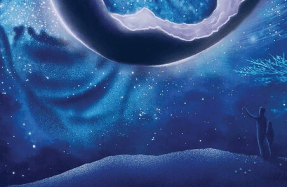THE LIGHT FANTASTIC

Thirty light-years away, a star explodes. For several months, it shines 10,000 times brighter than the full Moon. It’s so bright that, during the day, it looks as if the Sun has been joined by another sun, pumping out a hundredth as much heat and light.
The good news is that you can sleep easy tonight, because this scenario would not happen. Life on Earth is safe from such an event. Superluminous supernovae – up to 100 times as powerful as any stellar explosion previously known – are not only very rare, but appear to detonate in galaxies quite a bit different from our own.

In 1931, Fritz Zwicky and Walter Baade, working at the California Institute of Technology in Pasadena, made an astonishing claim about exploding stars, or ‘novae’. Their work built on a discovery made eight years earlier by Edwin Hubble, who had used what was then the biggest telescope in the world (the 2.5m Hooker Telescope on Mount Wilson, which overlooks Caltech) to show that the mysterious spiral nebulae were in fact galaxies – great islands of stars separate from the Milky Way and millions of light-years away.
Zwicky and Baade noticed that sometimes such galaxies hosted stellar explosions, capable of outshining 100 billion normal stars. Knowing that such explosions were enormously further away than ones in our Galaxy, the two astronomers concluded that they belonged to a new class they called
You’re reading a preview, subscribe to read more.
Start your free 30 days



